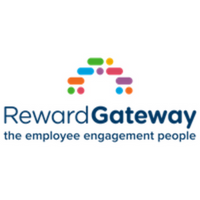Why inclusion should be a core focus in your benefits language
There has been much in the media about celebrities unintentionally using language that causes offense to adoring fans (and others). The impact is seen far and wide as it all happens on social media – the most public and fast-paced arena for all to be scrutinised.
Language is an important tool – just a few misplaced or ill-thought-out words can drive divides and make employees feel undervalued or disrespected. A core example of this is making immediate changes to be more inclusive of sex and gender.
For us to be inclusive of both sex and gender we need to change our use of words. It doesn’t need to be complex. It just needs to be mindful.
Gender and sex: don’t presume
For example, ‘female’ and ‘male’ should generally be used when talking or writing about biological sex. We should use ‘women’ and ‘men’ when we are referring to gender identity.
Sex cannot be presumed because of how someone presents their gender identity in social environments. Meaning, it is more inclusive to use ‘women managers’ than ‘female managers’. It is not inclusive to simply use ‘man’, ‘woman’, ‘other’ as your options.
Understanding has evolved and our language should too. Be inclusive of a diverse range of gender identity with terms such as ‘non-binary’, ‘agender’ or ‘genderqueer’.
Language in this space is evolving rapidly as people understand and open up about their identities. It’s important to provide a safe space for people to learn about different identities and forms of expression. Encouraging growth and understanding together helps to foster a truly inclusive mindset and culture.
Reward Gateway’s approach
HR leaders can expand their horizons when it comes to language. For example, Reward Gateway has leaned on its diversity, equity and inclusion network leaders to sense-check copy in its benefits language to ensure is it inclusive.
It has also held monthly ‘Difficult Conversations’, when employees can discuss more common workplace situations where marginalised groups are more often excluded, to learn together how to become an ally to them. Inclusive language has been a big part of those discussions and is one reason Reward Gateway uses a tool called Textio to improve the inclusivity and language used in its job descriptions.
The company’s people team has been working closely with network leaders to curate an inclusive language guide, not with the purpose of policing people and the language they are using, but by providing loose guidelines about acceptable language (including gifs and emojis) and clarity around the actions the business will take to create a more inclusive culture through our use of language.
This will be a living, breathing document that will change as the business grows and changes. It will reflect changes in the language used among employees and with clients to continue to create a more inclusive working environment.
Education and training
Education and training is also at the heart of any change, while providing supportive networks, as well as processes, to ensure that employee concerns are listened to and acted on to ensure they are embedded within Reward Gateway’s culture, through a combination of eLearning and facilitator-led sessions.
To put this into practice, the business also recently introduced a Trans & Gender Affirmation Support benefit, where it offers specialised support for transgender people going through gender affirmation and transition.
To launch this benefit, Reward Gateway’s team spoke with trans people and did research to understand how other companies were addressing transgender support.
Importantly, this led to how to include meaningful ‘extras’, such as pronoun visibility across all communication channels across the business and highlighting gender-neutral bathrooms, as well as extended paid leave, EAP support, wellbeing coaching and points toward a new wardrobe at a fashion retailer of their choice.
The key to making your language inclusive is relatively simple, but it is not enough to do it: Just listen. Be open to what’s happening around you, and what your people need to feel embraced, accepted and included.
Supplied by REBA Associate Member, Reward Gateway
We help the world's leading companies with an employee engagement platform.








